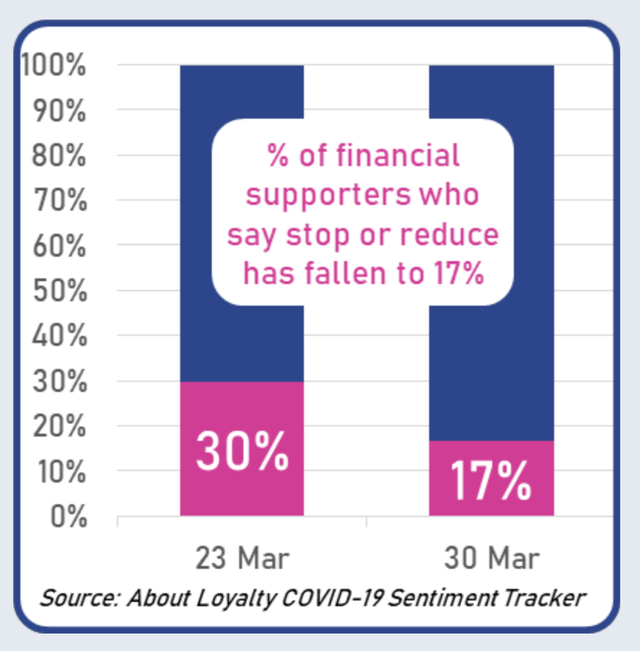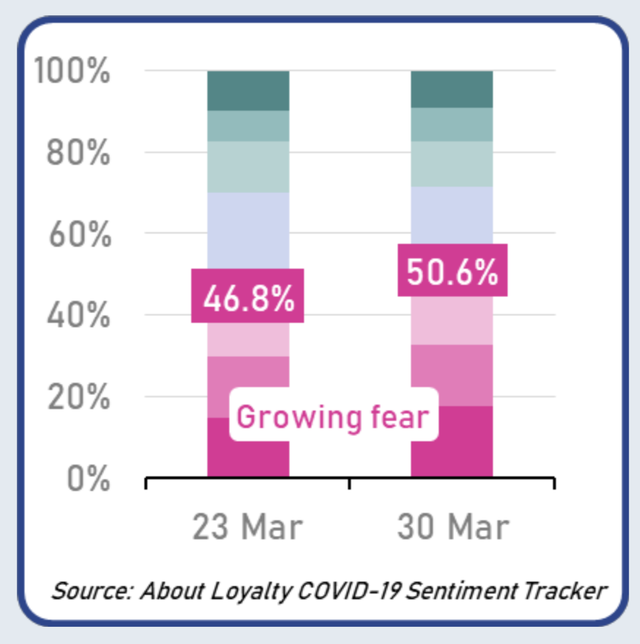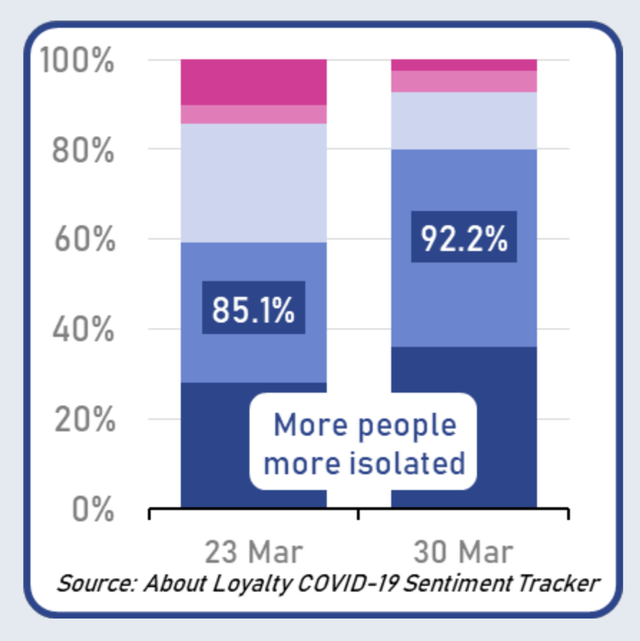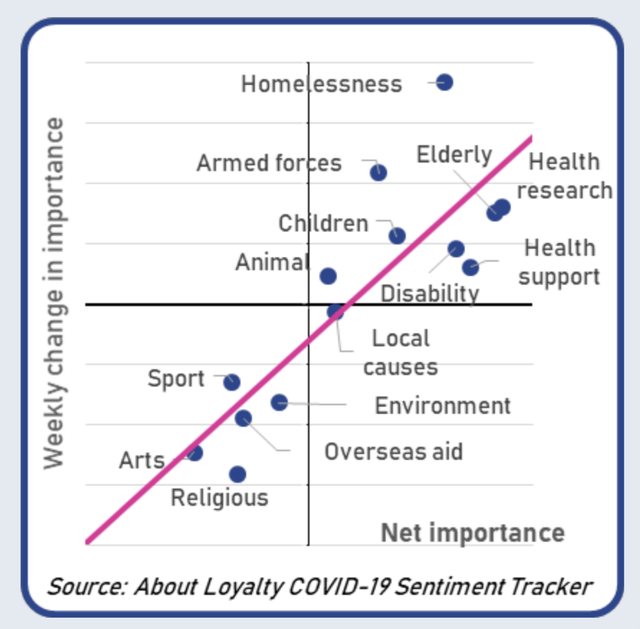Growing fear and a return to basic needs — week two of the coronavirus sentiment tracker
In the latest instalment of About Loyalty’s sentiment tracker, we see reasons for optimism but charity donors are also experiencing rising anxiety during the ongoing coronavirus crisis.
- Written by
- Richard Spencer
- Added
- April 09, 2020

It cannot be said too frequently: I hope that you, your family, friends and colleagues are fit and healthy and in good spirits during these extraordinary times.
Last week, I was shocked at the extent of the national anxiety and excited that we’d be able to help charities navigate a course through these turbulent times.
This week, we’ve found that some things are more concerning, others less so; some things even more confusing and others clarifying (a little). In these crazy times we’re here to help you understand how people are feeling and how they will behave as a result.
Good news for charities: fewer people said that they’ll stop or reduce giving

Last week we saw that 30 per cent of people said they would stop or reduce support for an existing charity if they thought it was not directly helping those affected by coronavirus. This figure fell to 17 per cent this week.
It’s possible that the scary 30 per cent was an initial knee-jerk response to the crisis. Maybe now that there has been more time to absorb a new reality, fewer people are intending to stop or reduce. It’s also likely that some of the 30 per cent have already cancelled their support.
The balance of people are either sticking with their existing charities, or starting new donations and increasing existing donations. We are of course hopeful that charities are not unduly impacted by the crisis and are continuing to support and help where we can.
Rising fear, rising anxiety

We’re asking people how secure they feel about key aspects of their life: family, health, finances, politics, society etc.
On a scale from ‘absolutely terrified’ to ‘completely fine’ the proportion at the terrified end has grown from 47 per cent to 51 per cent over the last week.
This applies to all aspects of their lives. There are no areas of life at the moment, about which people are feeling more secure.
A steady growth in underlying fear and anxiety.
And more people feeling more isolated

92 per cent of people are now self-isolating and/or actively practising social distancing up from 85 per cent of people last week.
Combined with growing fear, this is causing people to fall back on core, basic human needs. Although the fear of food running out has declined slightly week on week, it is still a major concern for most people.
People are increasingly missing seeing their family and friends, and having simple get-togethers at home.
And people are feeling more unprepared and less in control than ever before.
Your supporters are feeling isolated and focusing in on their basic human needs.
Charity support is polarising further

We saw last week that some sectors were seen as more important because of coronavirus and others less so.
What we’re seeing is an exaggeration of this over the last seven days.
Those sectors and charities seen as ‘more important’ have become even more important. And those seen as ‘less important’ have fallen even further out of favour at the moment.
Homeless and armed forces charities have seen the highest growth in importance this week, with the elderly and health charities still registering as the most important (and increasing).
Because of this startling trend, we’ve decided to launch the COVID-19 Supporter Index that will help you
understand very specifically how your charity supporters are feeling and responding to the crisis.
You can explore our ever-evolving series on how charities can rise to the challenge posed by the coronavirus outbreak, with the full contents here.
Read Richard Turner’s thoughts on the rise of altruism here.
Could the coming weeks be fundraising’s answer to Italians singing together on their balconies?

















